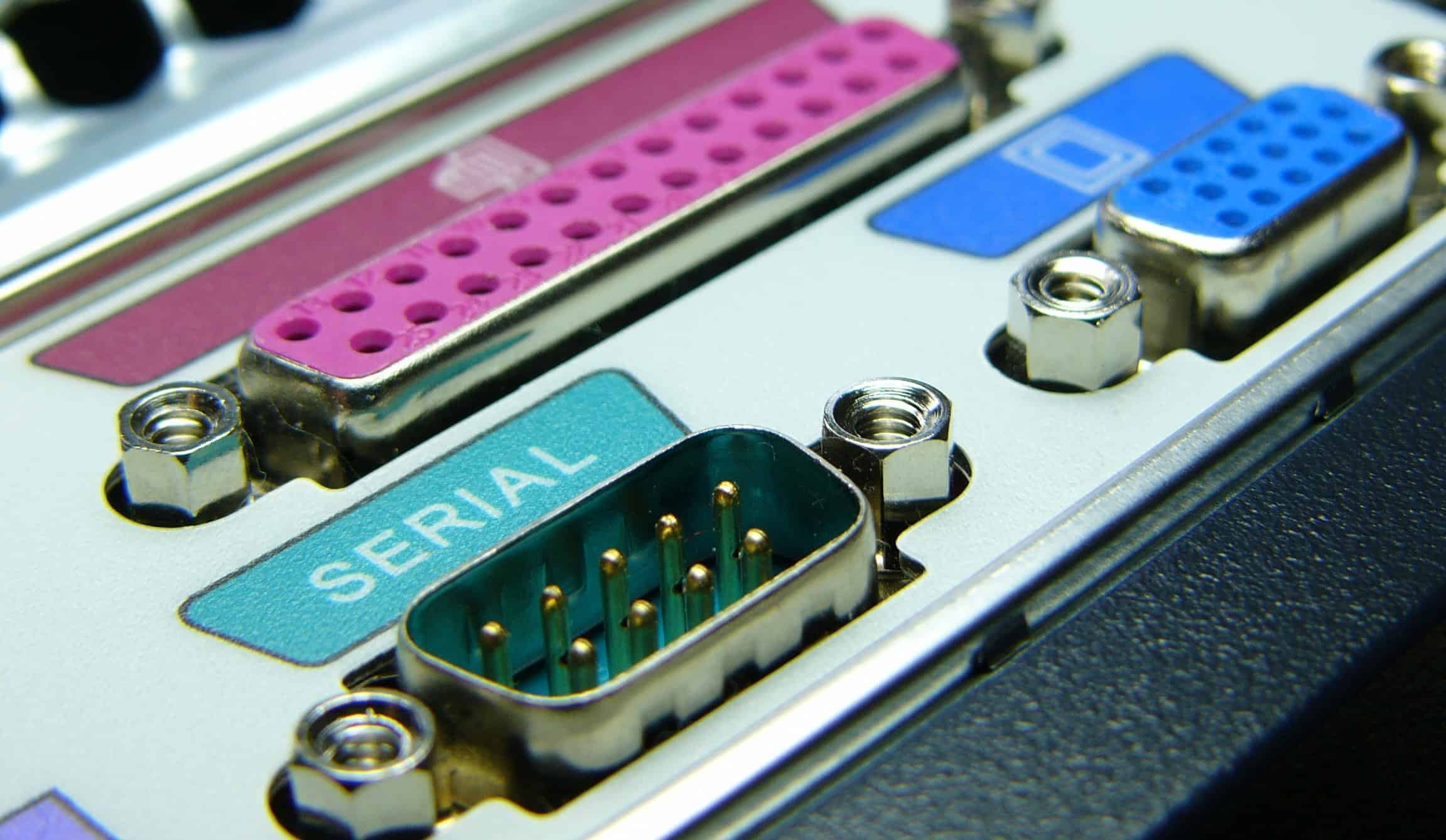The term “serial port” could refer to any port or connector on a computer that sends bits of data in series over a single pair of conductors. Typically, just one conductor in the cable is used for receiving, and another for transmitting data between the two devices. Although USB and Ethernet ports also send data this way, we are typically referring to 9-pin RS-232 or RS-485 COM ports when we use the term “serial port.”
In contrast, a “parallel” port is one that uses several conductors to transmit whole bytes simultaneously, and could potentially send data a little faster. Yet, despite the popularity of the now much faster USB standards, old-school serial ports are still quite common today.
Are Serial Ports Obsolete?
On home and office PCs of the past, serial ports were most often used to attach a mouse, a dial-up modem, or other add-on devices like gaming controllers. Nowadays USB has largely replaced serial ports for most consumer applications. But serial ports can still be found on some system boards as an internal header connector. If so, it only takes a special cable and bracket to add a 9-pin serial port or two to the back of your PC. Or, an inexpensive PCI card can be used to add several.
Where Serial Ports are Still Used
Serial ports are actually still quite common on computers geared towards business, industry, and science applications. They are frequently used on servers, networking equipment, industrial PCs, and medical equipment. Because its simple design allows two-way communication of text and commands without the requirements of higher speed standards, it is still a good solution for connecting devices over short distances. On servers and networking hardware, serial ports provide a simple way to access a control console or to run diagnostics. They are also used to forward commands to automation controllers in factory settings, and to interface with lab equipment in testing environments.
If your application calls for one or more serial ports, contact the experts at General Technics to find the best solution. We carry many of the cards and brackets needed to add serial ports to modern computers, and can build one perfectly sized for your project.

